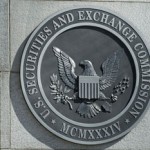Wall Street Fights for Our Right to Pay 5% Fund Fees

One of Wall Street’s chief lobbyists wants you to know that the financial industry has changed, a lot, since the financial crisis. The industry “has already fundamentally reshaped itself into one that is safer, sounder and more resilient,” Ken Bentsen Jr., chief executive officer of the Securities Industry and Financial Markets Association (Sifma), said recently.
If you count up the rules regulators have imposed on banks and brokers since the passage of the Dodd-Frank law, Bentsen has a point. Unfortunately, few of those regulations do anything to improve investing options for individuals. Too many Americans are still steered into financial products that are far more profitable for salespeople than for clients, and pay high fees and commissions. With basically anyone able assume the “financial adviser” title, whether at a brokerage or an independent firm, many investors remain baffled about whom they can trust.
Yet many major financial players appear more intent on lobbying lawmakers to maintain the status quo than changing the way investors are treated. A strong fiduciary rule, requiring all advisers to put clients’ interests first, would help investors navigate an increasingly complex financial landscape. After years of opposition by Sifma and other industry groups, late last month the Department of Labor once again quietly delayed re-proposing that rule until January 2015. That came after previous fiduciary rules were stalled several times by the department and the Securities and Exchange Commission.
Sifma says it would be in favor of a weaker version of the fiduciary rule, one that leaves alone longstanding business practices. That means unsophisticated investors with, say, $40,000 to invest could still get wildly different advice and pricing depending on what type of adviser’s office they walk into. At an independent adviser, investors might end up in a cheap mutual fund after paying $300 an hour or less for advice. At a brokerage firm that’s a Sifma member, they might be put in a broker-sponsored fund with as much as a 5 percent load fee, costing them $2,000 right off the top.
Presented with this scenario at a Sifma event earlier this year, Bentsen said that “the investor should get to choose the type of account they want to have.” Banning load fees, he said, means “you take away choice from investors.”
Asked what the trade group is doing to restore investor trust, a Sifma spokeswoman cites two education initiatives. One urges adults to “take important steps” before investing: “Inform and educate yourself. Keep your accounts current. Use the right resources.”
Another initiative includes a “stock market game” designed to give middle and high school students “a solid understanding of the capital markets system.” On June 11, Sifma will host an awards reception in the U.S. Capitol Visitors Center. Members of Congress are invited, with the student winners segmented by state and congressional district — a sign the game has as much to do with strengthening Sifma’s bonds with Congress as with bolstering financial literacy.
If trust can be restored in the financial industry, it may come from ideas advocated by the CFA Institute, which awards the Chartered Financial Analyst designation. While its 100,000-plus members are sprinkled all over Wall Street, the group’s only real weapon is moral suasion. Sifma spent 26 times as much as the CFA Institute on lobbying last year, according to the Center for Responsive Politics.
In a series of events in 60 cities around the world last month, the CFA Institute urged members to start “putting investors first.” Rather than act like salespeople, financial professionals should emulate doctors and lawyers with a fiduciary duty to put clients’ interests first, says Rebecca Fender, director of CFA’s Future of Finance initiative. That requires having the “personal courage” to speak up when members’ firms aren’t doing the right thing, she says.
It’s tough to imagine this effort alone transforming the wolves of Wall Street into warm and fuzzy investor advocates. But if they want to win tomorrow’s customers, they need to do more than talk. According to the consultancy Scratch, more than 70 percent of 20- and 30-somethings would rather go to the dentist than listen to a bank.
Source: bloomberg





























